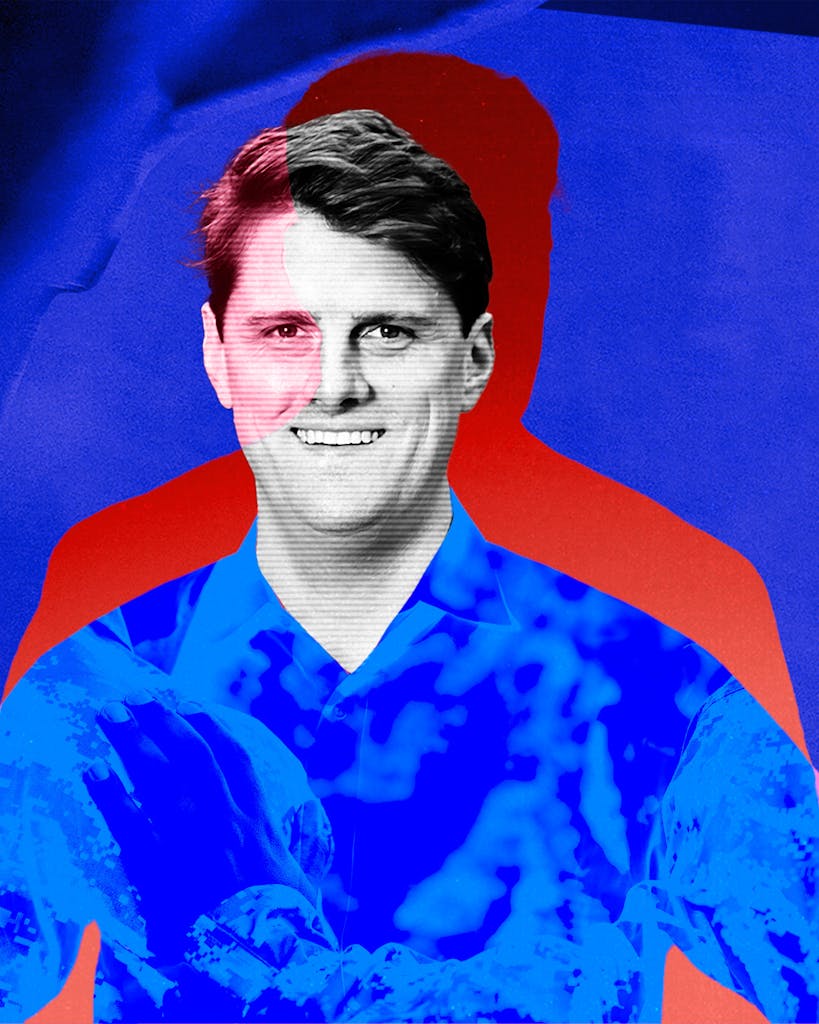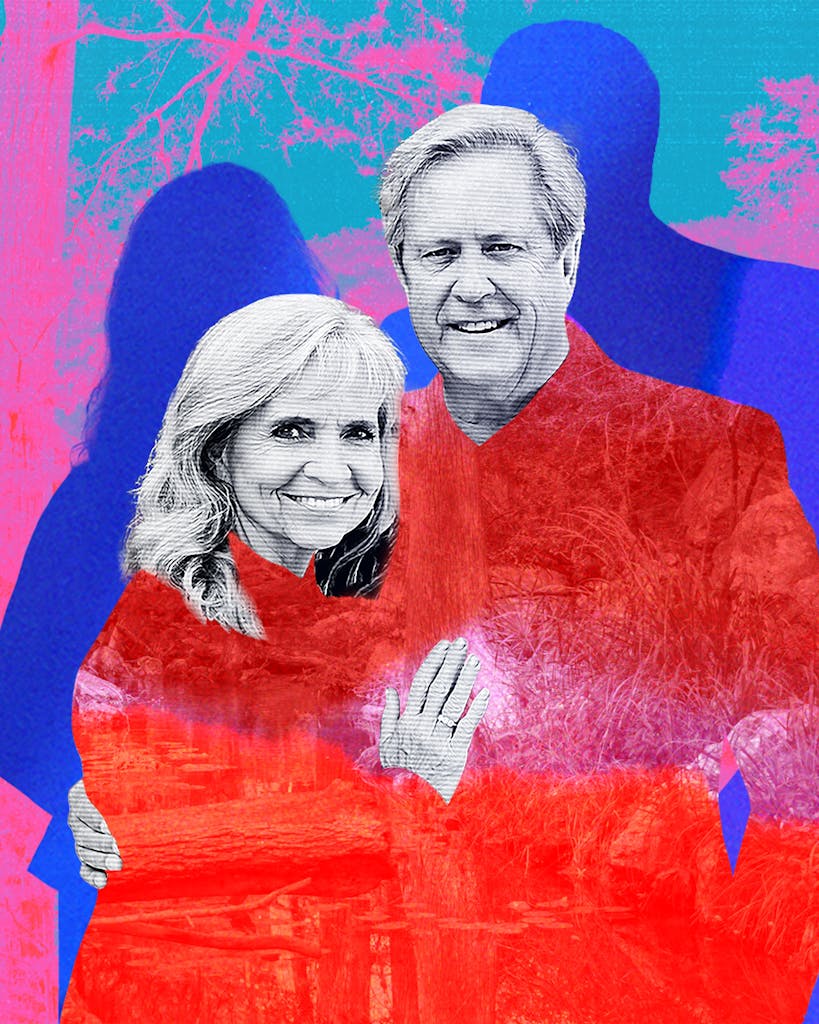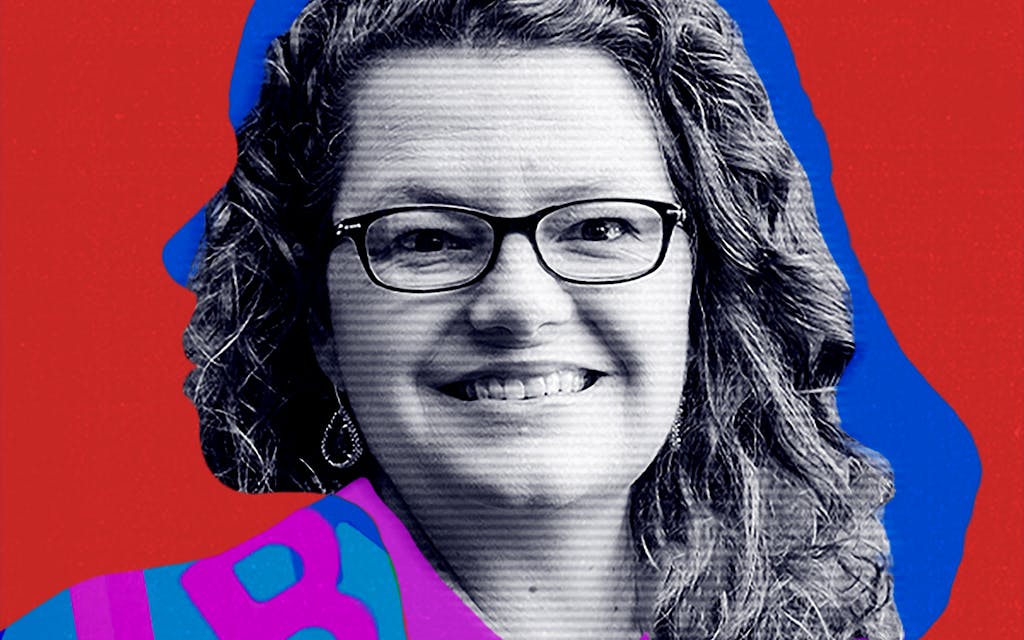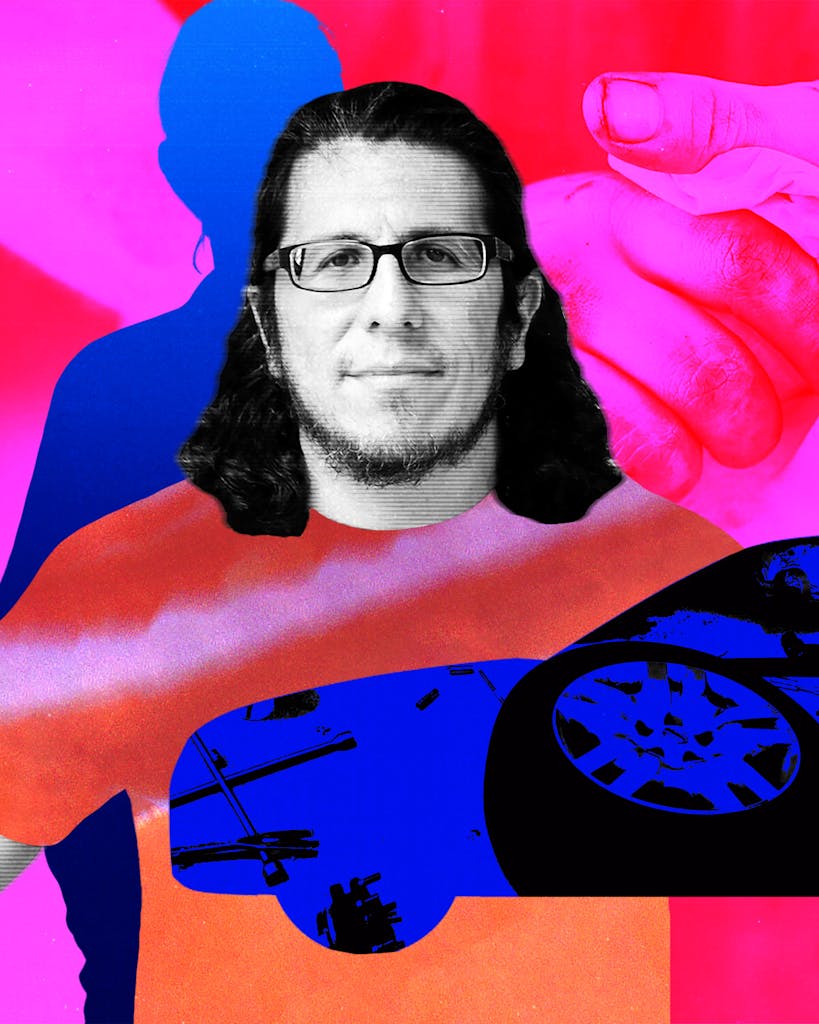Helping Underprivileged Job Seekers Look Great on LinkedIn
For disadvantaged, ambitious twentysomethings, the path to landing bigger jobs can be intimidating—and unexpectedly expensive. This trio created Headshots for the Homies to lower the barriers to higher-paying jobs.
When Maria Yolisma Garcia decided to look for a new job in 2019, she wanted to have a professional headshot to include with her résumé and upload to her LinkedIn page. But getting one is expensive—photography studios charge as much as $300 for a single session. So Garcia asked her friend Cinthia Jaimes, who runs Cinphotos, a studio in Oak Cliff that takes portraits and boudoir photos, if she could take her headshot. “We started talking about how expensive getting a headshot can be, especially for folks who are very early in their careers or in between jobs,” Jaimes says, “and we thought how we could provide a resource for our community.”
What began as a simple vision—free professional headshots—quickly grew into something closer to a career fair, including networking and recruitment opportunities and a résumé workshop. Garcia and Jaimes’s friend Elva Chavez helped secure an event space and a $500 donation that paid for catering. The first Headshots for the Homies attracted more than one hundred participants in 2019. This year even more job seekers showed up, thanks in part to a $25,000 grant cosponsored by Cheetos and musical artist Bad Bunny. That will further their aim, which, as Jaimes says, is to help build upward mobility. If you want to donate or volunteer, send a message to @forthehomies_dtx on Instagram. —Josh Alvarez

Troop Support for the War After the War
Since 2001 more than 30,000 active-duty service members and veterans of post-9/11 conflicts have killed themselves. San Antonio native William Negley created Sound Off, a mobile app that allows current and former members of the military to anonymously access mental health care.
Negley was a CIA officer in 2011 when he noticed suicide among military veterans becoming a topic of national discussion. Seventeen veterans die by suicide every day, according to the U.S. Department of Veterans Affairs. “There’s a common misconception that there’s all these resources available but they’re just not working,” Negley says. “In fact, there are lots of resources available, but mountains of data tell us half or more of those who are struggling are not seeking help,” because they fear their problems will become public knowledge or they’ll lose career opportunities.
Tragically, things became all too personal for Negley when his brother-in-law, decorated Navy SEAL William “Bill” Mulder, killed himself in June 2017. Negley had by then left the CIA and started working on the Sound Off app, which anonymously connects service members and veterans with mental health professionals. “I was one hundred percent my sister’s brother, but I was also one hundred percent somebody who had spent the last four years trying to build something to address this exact issue. I didn’t have to take off either hat because my sister, Sydney, was immediately all in.” She quickly became a spokesperson for Sound Off and for veterans’ mental health. In the past year alone, nearly one thousand service members and veterans are seeking help through the app. If you want to donate, click here. —Josh Alvarez

When Landowners Turn Ranches Into Nature Preserves, All Texans Win
Only about 5 percent of Texas’s 261,268 square miles of land is public, and large landowners near rapidly growing cities have millions of reasons to turn their property into yet another subdivision. That’s what Ronnie and Terry Urbanczyk had in mind for their Hill Country ranch—before their kids and Texas Parks and Wildlife led them to turn it into a nature preserve instead. And they’re urging other landowners to follow their lead.
The Urbanczyks were out for a Hill Country drive one Sunday afternoon about thirty years ago when they spotted a piece of land for sale. Through gaps in the live oaks lining the highway, they could see an expanse of wooded grassland that dropped down into a valley feeding the Guadalupe River to the north. “We fell in love with the ranch,” Ronnie remembers. They put an offer on the land and not long after moved their young family of five into a tiny farmhouse on those 245 acres, about thirty miles north of downtown San Antonio.
The Urbanczyks’ property abutted Honey Creek State Natural Area, a Hill Country time capsule that protects a gin-clear stream winding through towering bald cypress trees. The creek is known for being pristine, and with surrounding habitats, it supports a variety of native and at-risk species such as the golden-cheeked warbler, the Comal blind salamander, and numerous rare cave-dwelling invertebrates. The natural area, which is owned by TPWD and accessible only by guided tour, lies at the southern extent of Guadalupe River State Park, a popular getaway for San Antonians and Austinites.
Over the years the Urbanczyks added to their property, amassing some 750 acres. Ronnie owns a concrete company that pours slabs for housing construction. He figured that as the population grew in their part of the Hill Country, more new residents would need places to live. He hatched a plan to build a subdivision on the ranch, from which the Urbanczyks say they stood to make about $125 million. That plan met resistance as soon as they began filing the paperwork necessary to begin construction. Some nearby residents and conservation groups worried that the proposed development—plans at one point contained as many as 2,400 homes—would degrade Honey Creek and pose a slew of environmental threats in a sensitive ecosystem.
Terry says their kids never loved the idea of a subdivision on their childhood property. Over the years the couple scaled back the development plans, and then conversations with TPWD and the Nature Conservancy led to a surprising option. “We were not aware that making it a park would be a possibility unless you just donate the land, which we couldn’t do,” Terry says. Her children loved the idea. In June, TPWD announced that with the help of the Nature Conservancy and other donors, the state would purchase 515 acres of the Urbanczyks’ ranch for $25 million.
Landowners faced with a similar situation should know that there are resources available to ensure that sensitive ecosystems are protected, the Urbanczyks say. “I would really urge them to sit down with Parks and Wildlife and the Nature Conservancy and look at the options they have,” Ronnie says. “They get very creative about what they do.”—Will Bostwick

Signs of Life in a Childcare Desert
A West Texas town is hamstrung by a severe childcare shortage. Michelle Rinehart, the Alpine ISD superintendent, is going above and beyond to make it easier for young families to live and work there.
Rinehart remembers when she and her husband could not find any availability at a licensed childcare center in Fort Davis, where they were living at the time, for their young daughter. “It was this informal system,” Rinehart says. “You had to know somebody and then you had to hope for an opening.” Ultimately her husband stopped working in construction to be a stay-at-home dad. “We became a one-income family,” she says, at the worst time. Just months after Rinehart became the superintendent of Alpine ISD, in June 2022, the local advocacy group Alpine Community Projects raised lack of childcare as a top concern. “At the time there were around two hundred children under the age of three in Alpine. But there were only twenty-four spots available at two licensed centers, and then one closed,” she says. “We were losing exceptional teachers because they couldn’t find childcare.” While childcare lay outside Alpine ISD’s purview, Rinehart saw that she and the district were in the best position to help. After Rinehart and her team spent a year securing grants and hiring childcare professionals, the Alpine Child Development Center opened in August.—Josh Alvarez

Getting Low-Income North Texans Back on the Road
Like pretty much everywhere else in the state, you need a car to get around the Metroplex, but the average cost of repairing a vehicle has spiked 36 percent nationwide since 2018. If you’re living paycheck to paycheck, even simple repairs can lead to financial ruin. Manuel Valles Tellez is the founder of the nonprofit Autocare Haven, which provides free repairs for low-income North Texans.
I grew up in Borger, a little Panhandle town. I drive a red 2002 Dodge Ram 1500. It was pretty much brand-new when I got it, but I started seeing issues come up after I moved to Dallas, in 2006. Around 2014, the heater core, a small radiator-like object that warms the cabin, stopped working. Replacing it is a very extensive and thus expensive job on a lot of vehicles, and on my truck it’s a pain in the butt because you have to remove the entire dashboard and the steering column to access the part. Some repair shops won’t do it.
At that time in my life I didn’t have a lot of money and didn’t have good enough credit to get a credit card or a loan, but I needed to get back on the road to get to my marketing job. So I had to go to a payday lender. The original loan was $1,500, but because of the interest rate and terms on the loan, I ended up paying $7,000 over about eighteen months. Whenever I went to the lender to drop off a payment, I’d be waiting in line and chitchat with others who were waiting, and one thing I kept hearing was that they were there to get a loan or pay back a loan for a vehicle repair.
That got me wondering. If you can’t afford food, you can go to a food pantry. If you can’t afford health care, there are organizations and charities that can help with that. But when it comes to fixing your vehicle, the only thing I saw in North Texas was random churches doing occasional free oil changes or other really minor stuff.
I kicked around the idea of a nonprofit vehicle-repair service for a while, and in 2018 I started contacting mobile mechanics—the kind who come to your home and can, for example, replace your vehicle’s alternator or brake pads—and people with nonprofit experience. From that I was able to put together a board of directors. In 2019 we serviced 4 vehicles. This year we’re on pace to service around 70 vehicles, and in 2021 we started doing top-off events, usually at a parking lot, where people can just come up to get quick service, like an oil change, but we’ll also inspect the vehicle and give drivers a heads-up if there are any bigger issues looming. We’ve serviced an additional 150 vehicles through that. And we started a vehicle-donation program with the goal of being able to give vehicles to folks whose cars are beyond repair. If you want to donate money (or a vehicle!), click here. —As told to Josh Alvarez
This article originally appeared in the December 2023 issue of Texas Monthly as part of our “Giving Back” cover story. Subscribe today.
Photo credits: Headshots for the Homies: Courtesy of Headshots for the Homies; Negley: Ted Parker, Jr.; Urbanczyks: Taylor Walker; Rinehart: Jaylynn Celaya; Tellez: Jan Osborn/Dallas Doing Good
- More About:
- Giving Back
- Hill Country
- Fort Davis
- Dallas
- Alpine







